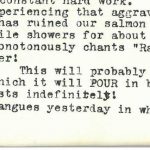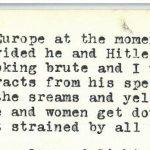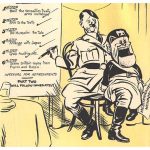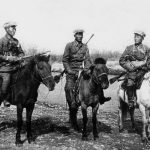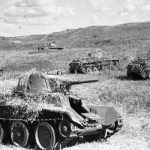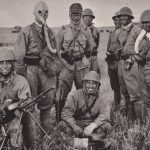This next entry begins with a change in pace and offers some light relief to the concerning global political picture. In events that will most likely be unfamiliar to readers of this blog (especially those Scottish amongst us!), Graham discusses the lack of rain that the area has been experiencing over the past month. Contrary to many who live in eternal hope of sustained good weather, Graham has issues with it due to the effect it has on one of his favourite pastimes: “once again we are experiencing that aggravating lack of rain which has so frequently in the past ruined our salmon seasons”.
Back to the international events of the day, Graham makes reference to Benito Mussolini’s most recent speech which took place in Turin the previous day. Thomas is rightfully dismissive of the perceived messages from him stating that “Musso announced that no problem confronts Europe at the moment which is worth war, adding in parenthesis – – provided he and Hitler get ALL they want!” These sentiments shared by Graham are reflected in the 1938 political cartoon below by David Low depicting the aggressive tactics and intentions of the two nations, led by “puppetmaster” Hitler.
As the year progresses, Thomas becomes more agitated with the BBC for what he feels to be unnecessary levels of broadcasting of the speeches from Hitler and Mussolini with obvious support and applause for their messages, claiming that “no-one wants to hear these ugly swine”. In a sign of the stereotypes of the era, Thomas expresses concern for women who he believes are especially likely to be affected by the tensions of the time.
A further development gaining momentum just before this entry by Graham which was lesser known, but which had far reaching consequences, were the Soviet-Japanese border conflicts. Although ongoing since 1932 between the two nations and their respective states of Mongolia and Manchukuo, most were of a small scale and considered as “skirmishes” until May 1939 when tensions increased, leading to the engagement of 100,000 troops during The Battle of Khalkin Gol over the summer. The eventual result was a Soviet defeat of Japan, the expulsion of Japanese forces from Mongolia and a neutrality pact between the two nations. It is suggested that after this experience, the Japanese did not want to face the Soviets again and so turned their attention south instead to the Pacific holdings of Euro-American powers. The decision to attack Pearl Harbour in December 1941, bringing the USA into World War Two, changed the course of the war and of history.
Sources used:
www.wikipedia.com
www.historyhit.com
www.bibliotecafascista.blogspot.com
www.thediplomat.com
